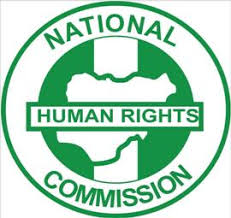NHRC moves to boost human rights monitoring, trains Staff, CSOs to Deliver Global Standard Report

The National Human Rights Commission (NHRC) is ramping up efforts to enhance the quality, credibility, and timeliness of its State of Human Rights Reports through a renewed focus on evidence-based documentation and international best practices.
The SA/H(MD) NHRC, Dr Benedict Agu emphasized this at the commencement of Two Day capacity-building session for NHRC staff, Civil Society partners, and human rights monitors held on Friday at the Commission’s headquarter in Abuja.
Dr Agu underscored the vital role of accurate documentation in holding perpetrators accountable, advocating for victims, and preventing future violations. “Documentation is not just an academic exercise. It’s a legal tool, a historical record, and a call for justice,” He said. “Every word we write must be verifiable, impartial, and written with purpose because lives depend on it.”
The training emphasized the importance of credibility in reporting — from gathering corroborated information, verifying sources, and safeguarding victims’ identities, to using standardized templates and clear, non-inflammatory language. Participants were reminded that reports must avoid speculation, personal bias, or politically charged rhetoric, while maintaining a tone suitable for varied audiences including the presidency, legislature, international partners, and the Nigerian public.
Issues covered in the session included the legal responsibilities under international law for states to promote and fulfill human rights, particularly for marginalized groups such as women, children, persons with disabilities, and LGBTQ+ individuals. Facilitators acknowledged the legal complexities around certain rights in Nigeria but stressed that documentation must still reflect human dignity and remain rooted in international human rights obligations.
Participants were trained to apply thematic focus areas such as health, housing, education, food security, digital rights, security concerns, especially in conflict-prone regions like the North East and emerging issues like climate change. In all cases, reports must clearly explain methodology, include calls to action, and adhere to a “reasonable grounds” test for belief in any allegation, Dr Agu said.
He also stressed that NHRC’s legacy lies in transitioning from general reporting to producing internationally respected, high-quality publications. “We’ve been doing this since 2006,” he noted. “But now, we’re pushing for a world-class standard that reflects our A-status as a national human rights institution in Africa.”
In closing, participants were urged to write with clarity and humility, validate their findings through peer review, and remember that impactful human rights advocacy begins with how information is collected, presented, and communicated. “If your report isn’t simple and credible,” Dr Agu warned, “it will simply be ignored and the rights we are meant to protect will be lost in translation.”
The session marks another step toward institutional reform as the Commission modernizes its approach to human rights documentation, with the ultimate goal of driving positive change through transparency, accountability, and policy influence.
